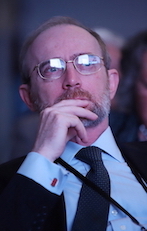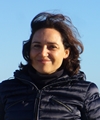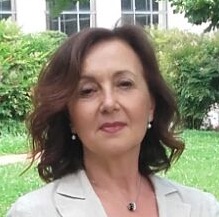Studying at the University of Verona
Here you can find information on the organisational aspects of the Programme, lecture timetables, learning activities and useful contact details for your time at the University, from enrolment to graduation.
Academic calendar
The academic calendar shows the deadlines and scheduled events that are relevant to students, teaching and technical-administrative staff of the University. Public holidays and University closures are also indicated. The academic year normally begins on 1 October each year and ends on 30 September of the following year.
Course calendar
The Academic Calendar sets out the degree programme lecture and exam timetables, as well as the relevant university closure dates..
| Period | From | To |
|---|---|---|
| Sem. 1A | Sep 24, 2018 | Nov 10, 2018 |
| Sem. 1B | Nov 19, 2018 | Jan 12, 2019 |
| Sem. 2A | Feb 18, 2019 | Mar 30, 2019 |
| Sem. 2B | Apr 8, 2019 | Jun 1, 2019 |
| Session | From | To |
|---|---|---|
| Sessione Invernale | Jan 14, 2019 | Feb 16, 2019 |
| Sessione Estiva (Gli esami sono sospesi durante la Sessione di laurea) | Jun 3, 2019 | Jul 27, 2019 |
| Sessione Autunnale | Aug 26, 2019 | Sep 21, 2019 |
| Session | From | To |
|---|---|---|
| Sessione Estiva | Jul 8, 2019 | Jul 13, 2019 |
| Sessione Autunnale | Nov 4, 2019 | Nov 9, 2019 |
| Sessione Invernale | Mar 30, 2020 | Apr 4, 2020 |
| Period | From | To |
|---|---|---|
| Festa di Ognissanti | Nov 1, 2018 | Nov 1, 2018 |
| Festa dell’Immacolata | Dec 8, 2018 | Dec 8, 2018 |
| Vacanze di Natale | Dec 22, 2018 | Jan 6, 2019 |
| Vacanze di Pasqua | Apr 19, 2019 | Apr 23, 2019 |
| Festa della liberazione | Apr 25, 2019 | Apr 25, 2019 |
| Festa del lavoro | May 1, 2019 | May 1, 2019 |
| Festa del Santo Patrono - S. Zeno | May 21, 2019 | May 21, 2019 |
| Festa della Repubblica | Jun 2, 2019 | Jun 2, 2019 |
| Vacanze Estive | Aug 12, 2019 | Aug 17, 2019 |
Exam calendar
Exam dates and rounds are managed by the relevant Humanistic Studies Teaching and Student Services Unit.
To view all the exam sessions available, please use the Exam dashboard on ESSE3.
If you forgot your login details or have problems logging in, please contact the relevant IT HelpDesk, or check the login details recovery web page.
Should you have any doubts or questions, please check the Enrollment FAQs
Academic staff
 claudia.annechini@univr.it
claudia.annechini@univr.it
 cristina.bertazzoni@univr.it
cristina.bertazzoni@univr.it
 luca.odini@univr.it
luca.odini@univr.it
 stefania.pontrandolfo@univr.it
stefania.pontrandolfo@univr.it

Pozzo Riccardo
 riccardo.pozzo@univr.it
riccardo.pozzo@univr.it
 +390458028053
+390458028053
 marco.ubbiali@univr.it
marco.ubbiali@univr.it
Study Plan
The Study Plan includes all modules, teaching and learning activities that each student will need to undertake during their time at the University.
Please select your Study Plan based on your enrollment year.
1° Year
| Modules | Credits | TAF | SSD |
|---|
2° Year activated in the A.Y. 2019/2020
| Modules | Credits | TAF | SSD |
|---|
| Modules | Credits | TAF | SSD |
|---|
| Modules | Credits | TAF | SSD |
|---|
| Modules | Credits | TAF | SSD |
|---|
Legend | Type of training activity (TTA)
TAF (Type of Educational Activity) All courses and activities are classified into different types of educational activities, indicated by a letter.
Pedagogical hermeneutics (2018/2019)
Teaching code
4S000562
Teacher
Coordinator
Credits
9
Language
Italian
Scientific Disciplinary Sector (SSD)
M-PED/01 - PEDAGOGY, THEORIES OF EDUCATION AND SOCIAL EDUCATION
Period
Sem. 2A, Sem. 2B
Learning outcomes
1. To know and understand that education can also be thought of as the result of an "experience of interpretation" of the behavior of the educator by the educator, a behavior that, in turn, is the result of his "interpretation" of his own way of relating with educating with the reality in which it is found.
2. To know in its various aspects what it means to "interpret"; to know the history of hermeneutics (not just philosophical) and to understand the necessity of its linguistic-conceptual reformulation in pedagogical terms.
3. Understanding that the hermeneutic approach to education requires knowing how to think on a meta-cognitive and symbolic level; this ability, in particular, is an integral part of the professional competence of the pedagogist, especially in his function as consultant, supervisor and trainer.
ABILITY TO APPLY KNOWLEDGE AND UNDERSTANDING
1. To possess a level of knowledge of hermeneutics that will adequately contextualize it in the context of its history, with particular reference to the authors and to the modern and contemporary currents that have characterized its evolution, and to know how to apply it in understanding educational contexts in which educators and especially pedagogic work.
2. To know how to "translate" the acquired learning in the ability to understand, interpret, explain and communicate both a specific educational experience, both "texts" and works having an educational value (e.g. books, paintings, images, films, other artistic expressions and literary).
3. Knowing how to interrogate the classics of the history of pedagogy, interpreting its contents in the light of today's educational and / or pedagogical problems, thus integrating knowledge, apparently far from its historical and cultural horizon, into its educational and professional background.
Program
FIRST PART: what is hermeneutics
The first part of the program aims to put the necessary cognitive premises and then proceed in the knowledge and understanding of the essential disciplinary contents.
Education as a general "hermeneutical" problem.
The different aspects of the presence of interpretation in educational work.
The complexity of operational meanings, present in the word "hermeneutics".
The research hypothesis: the circularity of the relationship between education and hermeneutics.
SECOND PART: birth and historical development of hermeneutics
The second part of the program aims to deepen the initial knowledge by understanding and deepening the historical genesis of hermeneutics, its early developments and their pedagogical rereading.
The hermeneutical problem in Platonic thought to Aristotelian.
Because hermeneutics, as a practical and cognitive need, arises in the Hellenistic age.
The contribution of Jewish thought to the expansion of the interpretative horizon.
The intrinsically hermeneutical nature of Christianity and its development up to Scholasticism.
THIRD PART: modern hermeneutics and its important developments
The third part of the program aims to identify how the historical development of hermeneutics leads to a better understanding of its link with the interpreting subject and its existential experience.
From Protestant hermeneutics to philosophical hermeneutics of the early nineteenth century.
From the interpretation of the written text to the interpretation of the discourses.
From the interpretation of the discourses to the interpretation of the "experiences" that precede the speeches.
The affirmation of the figure of the "hermeneutical circle" and the role of art and history as interpretative tools.
FOURTH PART: contemporary hermeneutics and its pedagogical interpretation
The fourth part of the program aims to present some of the most significant developments in contemporary hermeneutics and its reinterpretation in a pedagogical key.
Hermeneutics in Germany and its ontological turn.
Hermeneutics in France and the accentuation of the symbolic dimension as an object of interpretation.
Hermeneutics in Italy and its question of the relationship between truth and interpretation.
FIFTH PART: Exercise of "applied" pedagogical hermeneutics
The fifth part of the program aims to directly experiment "how" to be able to do hermeneutics applied to education, through practical exercises.
From philosophical hermeneutics to "applied" pedagogical hermeneutics.
Vision and interpretation of works of art.
Vision and interpretation of educational films.
Reading and interpreting classics from the history of education.
Experiences of application of hermeneutics in the context of concrete educational situation.
ORGANIZATION OF THE DIDACTIC ACTIVITY
The lessons will take place keeping in mind some teaching methods that will alternate according to the needs connected to the program:
the "frontal lesson", for the presentation of conceptually more important or more difficult contents;
the "participated" and workshop lesson, in relation to the moments of classroom dialogue between students and teacher and collaboration between the students;
The "dialoguing lesson", useful for encouraging interventions, asking questions and giving space to brief debates on the issues discussed each time;
The "seminar lesson", with the intervention of some professional educator or pedagogist who has experimented with the value of interpretation in his field of work.
The lesson in "e-learning" mode; if it is necessary, the e-learning platform will be used to load educational material.
| Author | Title | Publishing house | Year | ISBN | Notes |
|---|---|---|---|---|---|
| D. LORO | "Fare ermeneutica pedagogica". Elementi metodologici e operativi (Dispensa) | 2019 | |||
| D. LORO, | Interpretare l'educazione, Introduzione all'ermeneutica pedagogica (Edizione 1) | Edizioni Libreria Cortina, Verona | 2016 | 9788877491978 | |
| PLUTARCO | L'arte di ascoltare | Arnoldo Mondadori, Milano | 1995 |
Examination Methods
TEXTS FOR THE EXAM
To reach the learning objectives listed above it is necessary to study three texts, compulsory for all, attending and not frequent:
D. Loro, Interpret education. Introduction to pedagogical hermeneutics, Verona ed. Cortina Library, 2016.
D. Loro, "Doing pedagogical hermeneutics". Methodological and operational elements, Lecture 2018-2019 (the text will be available only at the end of the course at the University stationery shop, Lungadige Porta Vittoria, 37. www.ateneovr.it).
Plutarch, The art of listening, trad it., Milan, ed. Arnoldo Mondadori, 1995 and subsequent editions.
For the part of exercises of applied hermeneutics we recommend the following texts:
R. Bach, The seagull Jonathan Livingston, trad. it., Milan, ed. Rizzoli, various editions.
A. De Saint-Exupery, The little prince, trad it., Milan, ed. Bompiani, 2005 or other editions.
M. Ende, Momo, Turin, trad. it., ed. SEI, 2011, 6th reprint 2014 or other editions.
H. Hesse, Siddharta, Milan, ed. Adelphi, 1975 and subsequent reprints.
L. Sepulveda, History of a seagull and the cat that taught her to fly, Florence, ed. Salani, 1996 and subsequent reprints.
The exercise can also be performed on other texts, but approval by the teacher must be requested.
EXAMINATION METHOD
The objective of the final exam is to verify the level of learning of the contents of the program, which in turn is proof of achieving a positive level of knowledge, understanding and application of what has been formulated as specific training objectives and as "expected learning outcomes" .
The exam will normally take place oral information in two stages:
a) oral examination. The questions will be of the following type:
• descriptive questions, to verify the learning and understanding of the contents;
• questions of an argumentative type, to verify the ability to link and autonomously reflect on the contents;
• applications of an applicative type, to verify the ability to think in concrete and operational terms the theoretical contents studied.
b) presentation of a written report, which deals with the practical experience of hermeneutics applied to education and pedagogical thought. The report will be composed according to the compositional scheme indicated by the teacher and will be sent to the teacher 7 days before the date set for the oral examination.
If at the time of enrollment closing the number of students will be more than 15, the exam will not be held in oral but written form, even if the actual number of those present at the exam is lower than the number of registered students.
As required by the "supplement to diploma" document, it is necessary to guarantee the connection between the exam program and the academic year in which the student takes the exam. Since each year the program of the course is deepened and updated in its contents, compared to the programs of previous years, it is culturally and didactically opportune that students enrolled in the previous academic years will take the exam bringing the program of the current academic year. If there are serious reasons, which prevent you from taking the exam with the program scheduled for that particular academic year, you need to present the problem to the teacher before preparing to take the exam.
Type D and Type F activities
Modules not yet included
Career prospects
Module/Programme news
News for students
There you will find information, resources and services useful during your time at the University (Student’s exam record, your study plan on ESSE3, Distance Learning courses, university email account, office forms, administrative procedures, etc.). You can log into MyUnivr with your GIA login details: only in this way will you be able to receive notification of all the notices from your teachers and your secretariat via email and soon also via the Univr app.
Student mentoring
Graduation
Documents
| Title | Info File |
|---|---|
|
|
pdf, it, 99 KB, 13/10/23 |
|
|
pdf, it, 101 KB, 10/04/24 |
List of theses and work experience proposals
| theses proposals | Research area |
|---|---|
| Psicoanalisi | Psychology - Psychology, Psychoanalysis |
Gestione carriere
Linguistic training CLA
Practical information for students
Documents
| Title | Info File |
|---|---|
|
|
pdf, it, 325 KB, 02/05/23 |
|
|
pdf, it, 212 KB, 02/05/23 |
|
|
pdf, it, 131 KB, 02/05/23 |
Stage e Tirocini
Per le altre attività formative (crediti F) sono previsti 9 cfu (pari a 225 ore) da acquisire solamente attraverso l’attività di tirocinio obbligatoria, a sua volta suddivisa in:
- tirocinio indiretto (1 cfu: 25 ore di frequenza obbligatoria in università per il 75%) in preparazione dell’attività formativa sul campo;
- tirocinio diretto (8 cfu), da svolgersi presso enti convenzionati.
L’ordinamento didattico della LM in Scienze pedagogiche prevede che il tirocinio indiretto a frequenza obbligatoria si svolga in università per il 75% nel secondo anno (1 CFU: 25 ore).
Il tirocinio indiretto consiste in un accompagnamento iniziale delle/degli studenti da parte dei tutor attraverso un percorso di formazione della durata di 25 ore.
La finalità di questo percorso è quella di preparare le/gli studenti alla particolare forma di apprendimento costituita dal tirocinio, dotandoli di conoscenze e strumenti adeguati a osservare, comprendere e rielaborare criticamente l’esperienza di tirocinio nei servizi educativi e ad affrontare il tirocinio negli enti con metodo e consapevolezza.
Il percorso, da attuare in gruppi da 20-25 persone sotto la supervisione di un tutor proveniente dal mondo professionale di educatori e pedagogisti, risponde alle esigenze costantemente espresse sia dalle/dagli studenti stessi sia dalle parti sociali che dai referenti degli enti convenzionati.
Nuove Linee Guida per il tirocinio di Scienze pedagogiche.
- Tutte le informazioni in merito agli stage per futuri studenti sono disponibili alla pagina Stage e tirocini.
- Tutte le informazioni in merito agli stage per studenti iscritti sono pubblicate in MyUnivr - come fare per - stage e tirocini.
- Tutte le informazioni in merito agli stage per le aziende sono disponili alla pagina Stage e tirocini per azienze.

















